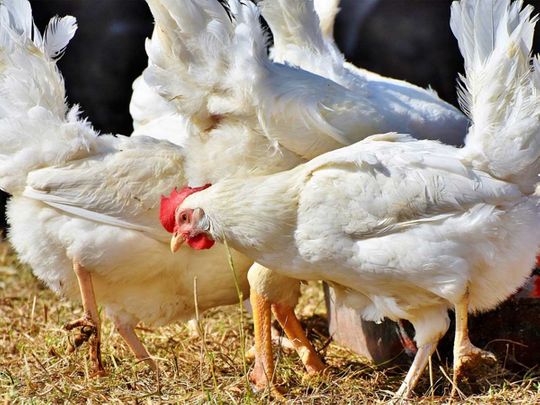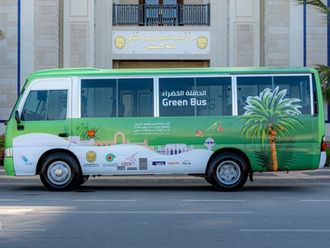
Cairo: More than 444,000 tons of poultry is wasted annually in Saudi Arabia, with its value estimated at around SR2.8 billion, according to a government agency.
The Saudi General Food Security Authority (GFSA) has estimated the poultry waste as accounting for 29% of the poultry output in the kingdom.
GFSA Studies noted that seven kilograms of poultry per person are wasted annually, Saudi news portal Akhbar24 reported.
According to a breakdown, the poultry waste during the production process is put at 41,800 tons; additional 63,600 tons during handling and storing; 19,400 tons during packaging; and 115,700 tons in distribution. Additionally, 203,700 more tons are wasted during consumption.
The value of annual food waste in the kingdom is estimated at a whopping SR40 billion. Rice, flour and bread account for the highest rates among food items wasted in Saudi Arabia, the kingdom’s Ministry of Environment, Water and Agriculture said in March.
Rice leads the food waste with 34 per cent of the total. Next on the waste list come flour and bread with combined 30 per cent.
Experts blame the waste on preparing excessive amounts of food greater than the actual needs.
As part of their prescription to reduce such waste, the experts suggest that the surplus food can be distributed to those in need through food banks and charitable societies.
People are urged to only cook the amount of food they need. Efforts are imperative to boost cooperation among government agencies, non-governmental organisations, restaurants and retail stores for the optimal reuse of food.
Furthermore, the experts urge families to observe Islam’s anti-extravagance precepts and rational consumption.
To this end, households are advised to plan their food purchases based on the number of the family members and their needs, avoid having too many types of food in a single meal to head off waste, innovate recipes making use of food leftovers, react rationally to commercials and properly wrap surplus food for reuse.












